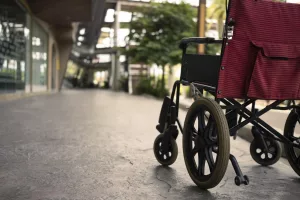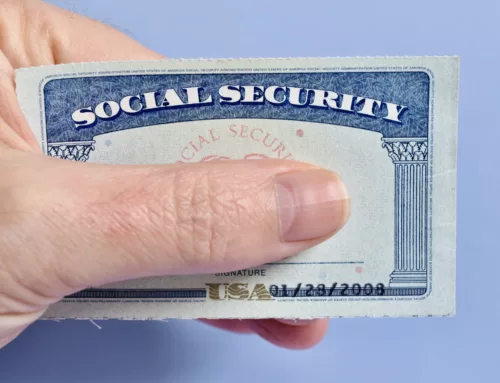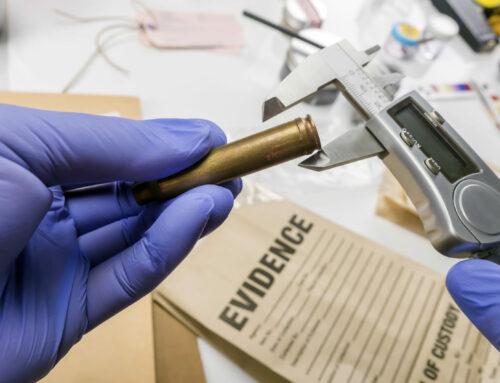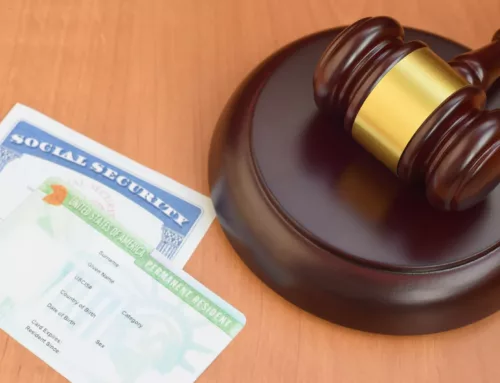If you recently became disabled and are unable to earn a substantial income, you may be qualified for Social Security disability insurance benefits provided you fulfill certain conditions, like having a limited income or having sufficient work credits through the SSA (Social Security Administration).
Since the government is the one that hands out Social Security disability benefits, a claimant may believe that they don’t need legal assistance during the disability application process. It is an unfortunate truth that millions of claims are denied each year by the Social Security Administration.
A claimant can increase their chances of getting their claim for Social Security disability benefits approved by working with an experienced disability attorney specializing in these cases. Take into serious consideration the result of this study and get in touch with a Jackson Social Security disability lawyer at our Rollins Law Firm.
The Rollins Law Firm has been providing legal aid to Mississippi residents with disabilities for decades. If you’ve tried to get disability benefits from the Social Security Administration and been turned down, we can help. We can walk you through the process of applying for social security benefits and advise you on what to do if your application is turned down. Schedule a free consultation with us now!
What Is Social Security Disability Insurance (SSDI)?
 Residents of Mississippi who become disabled can receive benefit payments per month through the Social Security Disability Insurance (SSDI), a federal disability insurance program. The actual amount of Social Security disability benefit payments a Mississippi resident gets is based on their work history and how much they have earned in the past.
Residents of Mississippi who become disabled can receive benefit payments per month through the Social Security Disability Insurance (SSDI), a federal disability insurance program. The actual amount of Social Security disability benefit payments a Mississippi resident gets is based on their work history and how much they have earned in the past.
SSDI benefits are available to those who cannot work for at least 12 months because of a disability or who have died as a result.
People with disabilities may also be eligible for short-term state benefits in some states. However, Mississippi does not provide state benefits. Therefore, federal programs are the principal source of disability aid for Mississippi residents.
Who Is Eligible For Social Security Disability Insurance Benefits?
To be eligible for benefits from SSDI (Social Security Disability Insurance), you need to:
- Have worked at jobs that are recognized by Social Security.
- Have a health condition that qualifies you for disability benefits under the Social Security Administration’s strict disability criteria.
Generally, SSA gives monthly benefits to those who can’t work because of a disability for a minimum period of one year. Most of the time, you can keep getting benefits up to the time you can start regular work again. There are also a number of special rules that help you transition back to work. These are called “work incentives,” and they give you continued benefits and health care coverage.
If you’re getting paid SSDI benefits when you have reached full retirement age, your disability benefits will automatically switch to retirement benefits. However, the amount will stay the same.
How Much Work Do You Need To Have Put In To Qualify For SSDI Benefits?
On top of meeting the SSA’s definition of disability, you need to have worked long enough and recently enough to be eligible for disability benefits.
Work credits for Social Security depend on how much you earn in wages or from self-employment each year. A maximum of four credits can be earned each year.
The amount you need for a work credit changes every year. For example, in 2022, you get one credit for every $1,510 you earn through wages or your own business. When you’ve made $6,040 for the year, you have earned your four credits for the year.
The number of work credits required to be eligible for disability benefit payments is determined by the age at which your disability began. As a rule of thumb, you must have at least 40 credits, of which 20 must have been earned within 10 years of the date your disability began. Younger workers, on the other hand, may be able to qualify with lesser credits.
How Are Credits Earned?
Since 1978, you can earn up to four credits a year.
Credits are based on how much money you made for the year from wages and self-employment. You may have to work throughout the year to earn four credits, or you may be able to do it in a lot less time.
The amount of earnings you need to earn credit may change yearly. In 2022, one Social Security credit is earned for every $1,510 in annual covered wages. To get the most credits for the year, you need to earn $6,040.
You might earn more than the minimum number of credits you need to qualify for benefits over the course of your life. These extra credits won’t increase the amount of your benefit. When you receive benefits, the amount you get paid each month is based on how much you earned on average over the years you worked, not on how many credits you earned.
How SSA Decides If Your Disability Qualifies
If you have enough work to qualify for disability benefits, SSA will use a five-question process to decide if your disability is qualified. These five questions are:
-
Do you have work?
The Social Security Administration (SSA) usually looks at how much money you make to decide if your work is SGA (Substantial Gainful Activity). If you work in 2022 and make an average of more than $1,350 a month, or $2,260 a month if you are blind, you are not likely to be considered a qualified disability.
If you don’t have work, or if you do have work but not doing SGA, your application will be sent to the Disability Determination Services (DDS) office, which will decide on your medical condition. The DDS makes the decision based on Steps 2 to Step 5 below.
-
Is your medical condition severe?
Your medical condition must make it difficult for you to perform basic things at work, like lifting, sitting, standing, walking, or remembering, for at least a year. If it doesn’t, the SSA will decide that you don’t have a disability that meets the criteria.
If your medical condition does make it hard for you to do basic work tasks, Step 3 will be the next move.
-
Is your medical condition among those listed as disabling?
For each one of the major body systems, the Social Security Administration keeps a list of medical conditions that they think are serious enough to make a person unable to do SGA. If your medical condition isn’t on the SSA’s list, the SSA will have to decide if it’s as bad as one on their list. If it is, they will determine that you do have a qualifying disability. If it’s not, Step 4 will be the next move.
-
Do you have any other options for work?
If you’re unable to perform the work that you previously could, SSA will consider whether there is other work you can still do despite your medical disability.
Your medical history, age, educational background, work history, and any skills that can be used in a new work will be considered. They’ll decide that you’re eligible for disability benefits if you can’t do any other work. If you can do other work, then they will decide that you don’t have a qualifying disability. Your disability claim will then be denied.
Blind Or Low-Vision People: Their Eligibility For Disability Benefits
Under Social Security rules, you are considered legally blind if you can’t get your better eye to see better than 20/200. SSA will also categorize you as legally blind if you can only see 20 degrees or less even with glasses or contact lenses. A lot of people who match the SSA’s legal definition of blindness still have some vision. They may still have the ability to read big print and move around with no cane or guide dog.
Even if you are not blind according to the legal definition, you may still be able to get a disability benefit. This could be the case if you can’t work because of your vision issues alone or compound by other health problems.
There are some special rules for blind people because blindness has a tremendous impact on a person’s capacity to work. The limit on how much blind workers can earn each month, for example, is usually higher compared to the limit for workers with disabilities who are not blind.
Widows Or Widowers With Disabilities: Their Eligibility For Disability Benefits
If a worker dies, their widow (or widower), or their surviving divorced spouse that has a disability may be able to get benefits if the following conditions are present:
- The widow (or widower) or surviving ex-spouse is between 50 and 60 years old.
- The widow (or widower), or their surviving divorced partner has a health condition that fits the SSA’s legal definition of disability for adults and it started before or within seven years of the worker’s death.
Children With Disabilities: Their Eligibility For Disability Benefits
A child below the age of 18 may have a disability, but that doesn’t matter when deciding if the disabled child is eligible for benefits as a dependent. A child’s benefits usually end at age 18, unless the child is a full-time student in elementary or high school (in which case the benefits can go on until age 19) or has a qualifying disability that makes them eligible.
Children who were getting disability benefits as minors on their parents’ records may be able to keep receiving those benefits on their parents’ records upon turning 18 as long as they still have a qualifying disability.
Adults Who Started Having a Disability Before the Age of 22
Adults with a disability that started before they turned 22 years old may be entitled to benefits if their parent dies or starts getting retirement benefits or disability benefits. Social Sw calls this a “child’s” benefit since it comes from the earnings record of a parent.
The Disabled Adult Child (DAC) can be an adopted child or, in certain cases, a grandchild, a stepchild, or a step-grandchild. The DAC has to be unmarried, 18 years old or older, have a qualified disability that began before the age of 22, and fit the definition of adult disability.
The DAC doesn’t have to have ever worked. Benefits are given based on their parent’s earnings record.
A DAC can’t have substantial earnings coming in. Every year, the amount of money the SSA considers to be substantial increases. This means working and making more money than $1,350 a month (or $2,260 a month if you are blind).
How does the Social Security Administration (SSA) decide if an 18-year-old child is eligible for SSDI benefits?
If a child is 18 years old or older, the SSA will evaluate the child’s disability the same way they evaluate an adult’s disability. The SSA will send the application to Mississippi’s Disability Determination Services (DDS) which then completes the decision about your disability for the SSA.
If the DAC marries, what will happen?
If the child is a DAC and gets benefits, the benefits usually end when the child gets married. But some marriages, such as those with another DAC, are protected.
Lawyers Specializing in Social Security Disability Benefits in Jackson, Mississippi
The process of applying for disability benefits from the Social Security Administration can be daunting and stressful. In order to qualify for a disability claim, you must meet certain disability requirements. Make sure your medical condition is covered and qualified for Social Security disability benefits before applying.
There is no guarantee that an application for Social Security disability payments will be approved. In the event that your initial claim is disapproved, do not give up. Whether you’re getting ready to submit a new application or your claim for disability was just denied, our knowledgeable Jackson social security disability benefits attorneys at Rollins Law Firm will be helpful in your quest for approval. We’ll gather all of your medical records and complete any paperwork needed by the Social Security Administration.
Let us help you through the appeals process so that you can collect the money you are entitled to. Make an appointment for a free consultation by calling us right now!








Connect with Us